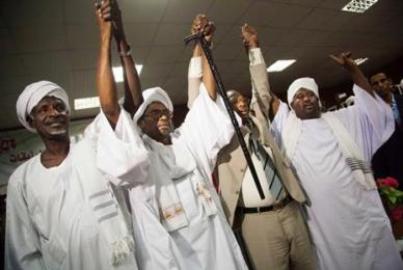Sudan opts for justice to settle Darfur tribal clashes
January 8, 2019 (KHARTOUM) – The Sudanese government said that the traditional reconciliation mechanisms are no longer valid to settle tribal conflicts, stressing that the judiciary should hold accountable those involved in the recent tribal events in West Darfur.

In its regular meeting on Wednesday, the Sudanese government discussed the tribal attacks in El-Geneina and the efforts made to stop the fighting, provide humanitarian aid to the affected people and ways to hold accountable those involved in the tribal fighting.
Speaking to the media after the meeting, Faisal Mohamed Saleh the Minister of Information and the government spokesman explained that the Attorney General formed an investigation committee to hold those responsible for tribal violence accountable and that this committee had already begun its work.
The meeting “acknowledged that the traditional methods of resolving tribal disputes through state interference, holding tribal reconciliation conferences and paying blood money are no longer effective,” he said.
He added that from now onward it is up to the judiciary to deal with the matter and any person involved in these clashes will be tried according to the law.
“The conflicting parties claimed that there are some individuals members of regular forces were involved in these events,” he said, stressing that these individuals will be identified and their immunity will be lifted before to face justice.
“This is the method that will be followed in dealing with such conflicts,” he emphasized.
Several photos and videos showed members of the Rapid Support Forces (RSF) from the Arab tribes participating in a gathering after the murder of an Arab after an altercation near a displaced people camp.
The cabinet meeting decided, also, to revitalize the activities of the Higher Committee on Disarmament tasked with overseeing the collection of illegal arms in Darfur.
Faisal pointed out that the problem that occurred in El Geneina has two dimensions: the first is the politicization of tribes in Darfur states, and the second is the proliferation of weapons in the region.
He said that the Attorney General is overseeing the activities of the investigation committee, which will end its work soon and bring those involved in the events to trial.
(ST)
